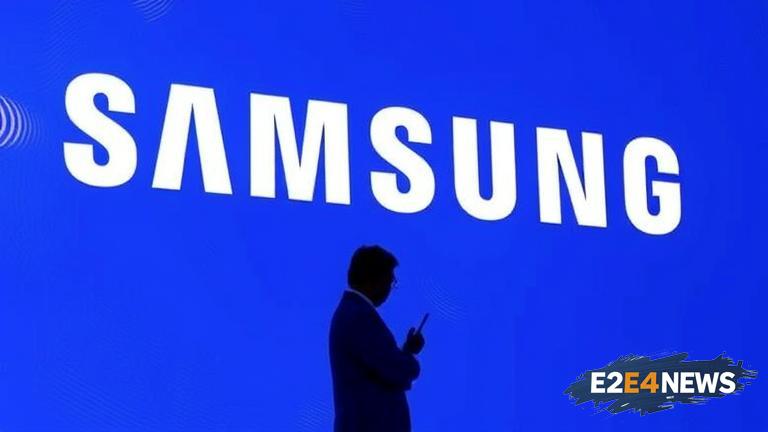Samsung, the South Korean tech giant, has reported a significant decline in its second-quarter profit, with a whopping 50% drop in earnings. The company’s operating profit for the quarter stood at 12.5 trillion won ($9.5 billion), missing analyst expectations. The disappointing earnings are attributed to weak sales of chips and smartphones, which are the company’s core businesses. The global chip market has been experiencing a downturn, with prices plummeting due to oversupply and weak demand. Additionally, the smartphone market has become increasingly saturated, with consumers holding onto their devices for longer periods. Samsung’s mobile business, which accounts for a significant portion of its revenue, saw a decline in sales due to intense competition from Chinese rivals such as Huawei and Xiaomi. The company’s chip business, which provides components to other tech companies, also suffered due to reduced demand from major clients. Despite the disappointing earnings, Samsung remains optimistic about its future prospects, citing the growing demand for 5G technology and artificial intelligence. The company is investing heavily in research and development to stay ahead of the curve and capitalize on emerging trends. Samsung’s display business, which supplies screens to other tech companies, saw a slight increase in sales due to growing demand for high-end displays. However, this was not enough to offset the decline in chip and smartphone sales. The company’s home appliance business also saw a decline in sales due to weak demand in key markets such as China and Europe. Samsung’s CEO, Lee Jae-yong, has vowed to take drastic measures to turn the company’s fortunes around, including restructuring and cost-cutting. The company is also exploring new business opportunities, such as 5G network equipment and automotive electronics. Despite the challenges, Samsung remains one of the world’s largest and most successful tech companies, with a diverse range of businesses and a strong brand. The company’s commitment to innovation and customer satisfaction has earned it a loyal customer base, and it is well-positioned to capitalize on emerging trends and technologies. However, the company faces intense competition from rivals such as Apple, Huawei, and Xiaomi, and must continue to innovate and adapt to changing market conditions. Samsung’s disappointing earnings have sent shockwaves through the tech industry, with many analysts and investors expressing concern about the company’s future prospects. However, the company’s strong balance sheet and commitment to research and development position it well for long-term success. In the short term, Samsung must navigate the challenges of a rapidly changing market and find ways to boost sales and profitability. The company’s ability to adapt and innovate will be crucial in determining its future success. Samsung’s Q2 earnings report has significant implications for the broader tech industry, with many companies facing similar challenges and opportunities. As the tech landscape continues to evolve, Samsung must stay ahead of the curve and capitalize on emerging trends to remain competitive.
